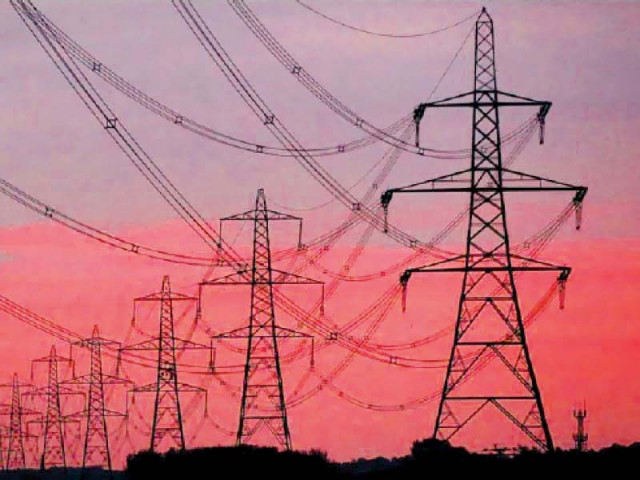CCOE considers discounting tariffs of IPPs
Stalemate between government, wind power plants continues

The Independent Power Producers (IPPs), that have installed energy plants under the China-Pakistan Economic Corridor (CPEC), have opposed the terms of revised agreements to reduce the rate of return.
The stalemate between the government and wind IPPs continues as well due to hurdles arising from involvement of from multilateral donors.
The government has already struck a deal with other IPPs and made payments to them by reducing the rate of return. Now, the leadership wants the same deal with Chinese IPPs under CPEC and wind IPPs.
However, the government is facing troubles in striking a deal with them due to the involvement of multilateral financers.
The government wants to discount the tariffs of IPPs by reducing the return on equity (ROE), return on equity during construction (RODC), operation and maintenance (O&M) and insurance.
While considering the implementation status of master agreements and amendments to the Power Purchase Agreement with wind IPPs, the Power Division told the Cabinet Committee on Energy (CCoE) that the IPPs under CPEC had not agreed to any of the conditions nor have they drafted any mechanism for discounts.
Officials from the Power Division stated that among the lenders, International Finance Corporation (IFC) and Asian Development Bank (ADB) were eager for reduction in ROE and insurance as per the initial agreement, however no formal commitment was provided because a US-based development finance corporation (DFC) presented an alternate proposal.
The latter offered to extend the debt tenor by five years along with reduction in spread by 0.5%. The development finance corporation claimed that its proposal would entail higher amount of savings compared to the ones stemming from the reduction in ROE, RODC and O&M.
The cabinet body was informed that the CPPA-G had analysed the above claim and determined that as per initiated agreements, the estimated savings from reduction in ROE, RODC, O&M and insurance would be Rs36 billion for four projects financed by the development finance corporation. It would initially provide temporary relief in cash flows for the first six years but the government of Pakistan would eventually have to bear an additional financing cost of Rs10 billion for the relief.
The Finance Division was of the view that the matter may be resolved by the Power Division without causing any financial implication to the government of Pakistan. The Alternative Energy Development Board (AEDB) observed that the offer of the development finance institution might hamper other wind IPPs from proceeding with the initiated agreement and a time limit would be set for the negotiations.
If the stalemate continues, the IPPs would be asked to consider an offer subject to reduction of spread by 1.5% instead of 0.5%.
Wind IPPs
The Power Division cited that consequent to the approval of the payment mechanism and agreements with the IPPs, 14 wind IPPs entered into initial agreements with the condition that the deals would be signed and executed subject to their lender’s approval.
The wind IPPs have financing arrangements with various international financial institutions (IFIs). In the initiated agreements, the wind IPPs agreed for tariff discounts with regard to the reduction in return on equity (ROE), return on equity during construction (ROEDC), operation and maintenance (O&M) and insurance and agreed to take the matter forward after the approval of respective lenders.
The Power Division highlighted that discussions were also held with the lenders to share the overall power sector reforms and the goal to manage circular debt so that tariff discounts agreed in the initiated agreements could be secured for the government of Pakistan.
Keeping in view the current situation, the Power Division submitted a proposal to CCOE for further deliberation and to draft the way forward.
It suggested to continue negotiations with the wind IPPs, financed by lenders other than DFC, in line with the initiated agreements.
The Power Division further recommended to remain engaged with the development finance institution with a view to convince it to allow its clients to sign and execute the initiated agreements and inform the DFC that its proposal has been analysed and found to be less favourable than the initiated deals.
During the discussion, it was noted by the CCOE that majority of the wind IPPs were keen to proceed with the initiated agreements.
The CCOE was also informed and requested to confirm that the tariff reduction determinations related to the 12 IPPs (under 2002 policy) as determined by the National Electric Power Regulatory Authority (Nepra) have also been notified to recover the discounts on the dates the payment (40%) was released.
The Cabinet Committee on Energy (CCOE) considered the summary submitted by the Power Division titled ‘Implementation Status of Master Agreements and PPA Amendments with Wind IPPs’ and approved the proposals.
Published in The Express Tribune, February 20th, 2022.
Like Business on Facebook, follow @TribuneBiz on Twitter to stay informed and join in the conversation.


















COMMENTS
Comments are moderated and generally will be posted if they are on-topic and not abusive.
For more information, please see our Comments FAQ